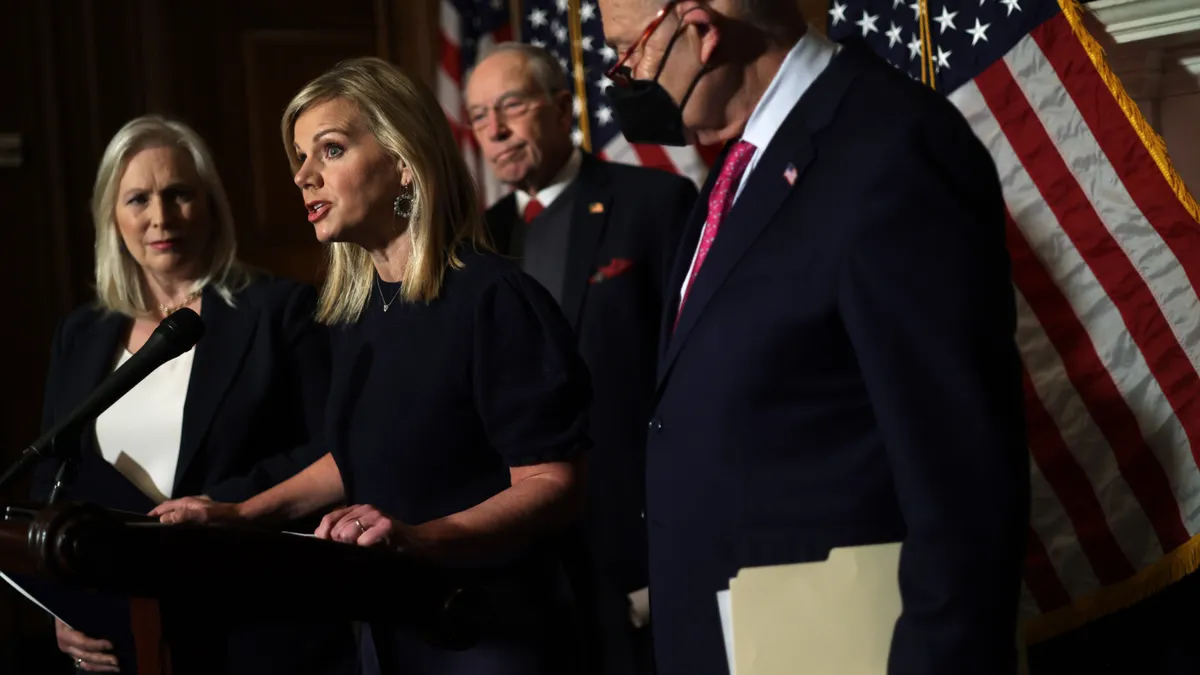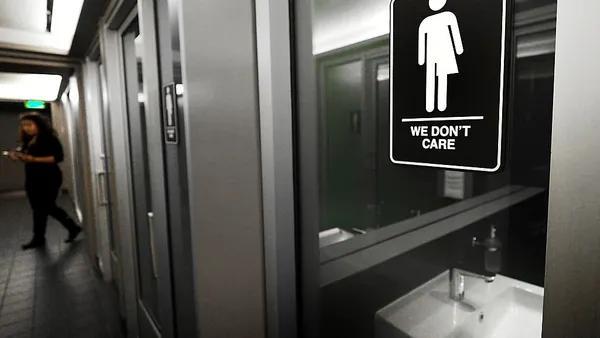Dive Brief:
- A former worker for API Group Life Safety USA can bring her case against the company because her disclosure of her status as a victim of sexual assault means the Ending Forced Arbitration of Sexual Assault and Sexual Harassment Act (EFAA) enables her to avoid arbitration, a federal district court judge determined Friday.
- The worker was employed by API from October through December 2024, according to court documents. During that time, she disclosed that she was experiencing ongoing domestic violence and, twice, sexual assault. She requested reasonable accommodations for her safety and, later, for pregnancy, after suffering a miscarriage. She was terminated the day after requesting the latter accommodation.
- While API tried to compel arbitration, the worker was exempt from arbitration because her claim involved a sexual assault dispute — even though the assault was not caused or enabled by the employer, the judge found.
Dive Insight:
The worker’s lawsuit alleged sex discrimination in violation of Title VII of the Civil Rights Act of 1964, failure to accommodate under the Pregnant Workers Fairness Act and several violations of Oregon law, including discriminating against her as a victim of violence.
Among the early cases to apply the relatively young EFAA, Polen v. API Group Life Safety USA, LLC tests an important question in interpreting the law: Does the sexual assault and/or sexual harassment involved in a claim need to occur in the workplace or come from a co-worker?
API said the answer was yes, arguing “the EFAA applies only to persons who have been sexually assaulted or harassed in the workplace,” according to the court’s opinion and order. API further argued that under the statute, its conduct “must have caused the sexual assault.”
Judge Michael Simon disagreed.
“The definition [of ‘sexual assault dispute’] does not include any causal link between the defendant and the underlying sexual assault, such as requiring that a plaintiff allege conduct by the defendant that caused or enabled the sexual assault,” Judge Simon wrote. “It also contains no limitation regarding who committed the sexual assault, where it was committed, or when it was committed. And Congress could easily have added any of those limitations.”
While it is “undisputed” that no API employee sexually assaulted the plaintiff, she alleged she suffered negative repercussions because of her sexual assault, Judge Simon said. “The EFAA broadly defines the type of dispute that falls within its framework as any dispute ‘involving’ an underlying nonconsensual sexual act. [The plaintiff] alleges a dispute with API that ‘involves’ a sexual assault — that API unlawfully considered her status as a victim of sexual assault against her in her employment.”
Previous applications involving EFAA have generally involved workplace-related instances of sexual harassment and sexual assault, including one in which a worker sued Celebrity Cruises, alleging she was raped by a co-worker, and a case against Chipotle involving similar allegations against a co-worker. The Chipotle case is ongoing, and Celebrity Cruises reached a settlement with the worker in the former case, documents filed in mid-November and August, respectively, showed.















